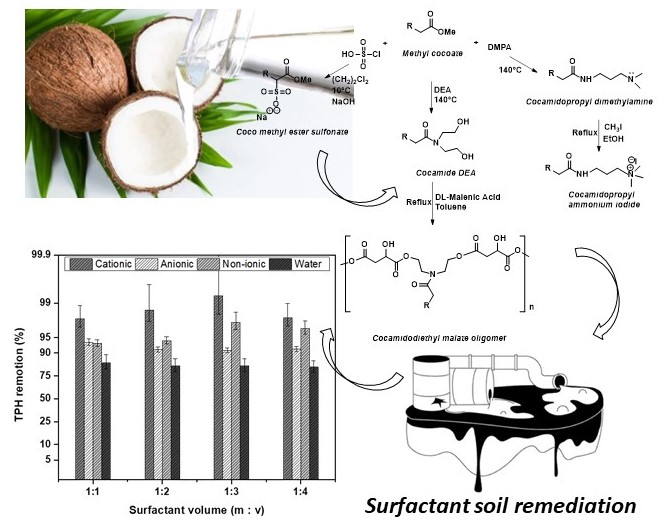 |
|
Nowadays, there is great concern about environmental pollution caused by human activity. The soil represents an ecosystem affected by oil activities. Surfactant soil washing is commonly used to remediate contaminated total petroleum hydrocarbons (TPH) soil. However, most commercial surfactants are derived from petroleum; therefore, new surfactants friendly to the environment are researched.
This work synthesized types three green surfactants from coconut oil. FTIR, and 1H NMR spectroscopy indicated the proposed chemical structures. These surfactants were evaluated in the TPH remotion. The results show a more effective removal of hydrocarbons using the cationic surfactant with 99.3 \%, followed by the non-ionic surfactant with 97.5 %, and the anionic surfactant, with 93.7 %.
Residual diesel in the soil was characterized and quantified using Gas Chromatography-Mass (GC-MS) and UV-Vis spectroscopy, complying with the maximum permissible limits of TPH in the soil (NOM-138-SEMARNAT/SSA1-2012). The GC results show the removal of several TPHs; however, some differ based on the type of surfactant used in the wash. Soil characterization by SEM-EDS confirmed that there was no significant particle wear. Furthermore, the cationic surfactant was not adsorbed on the soil after washing.
Keywords: surfactants, coconut oil, hydrocarbons, soil remediation, soil washing.
|
|
 |

